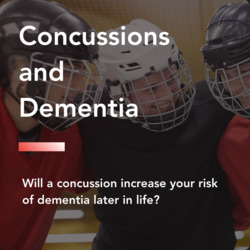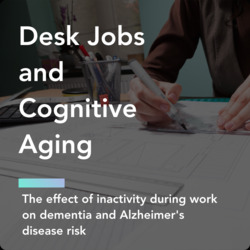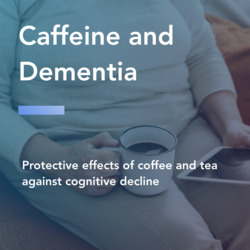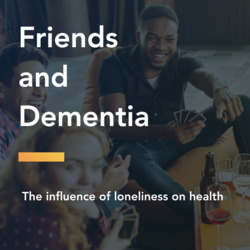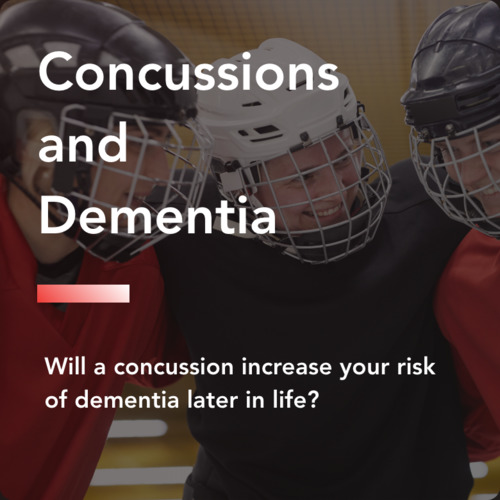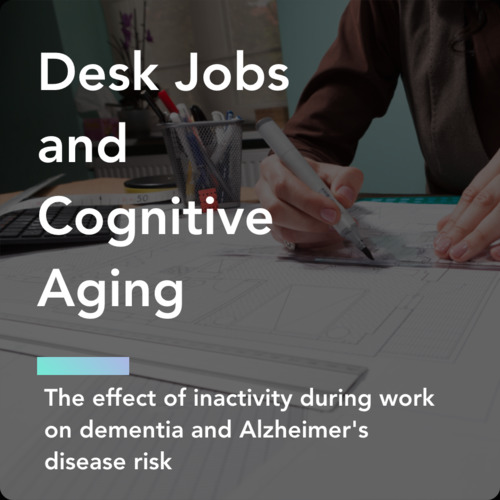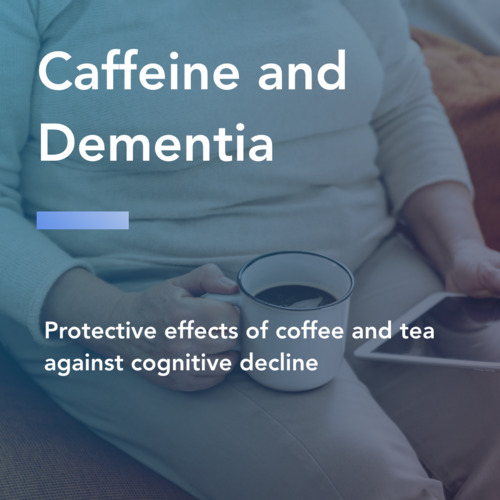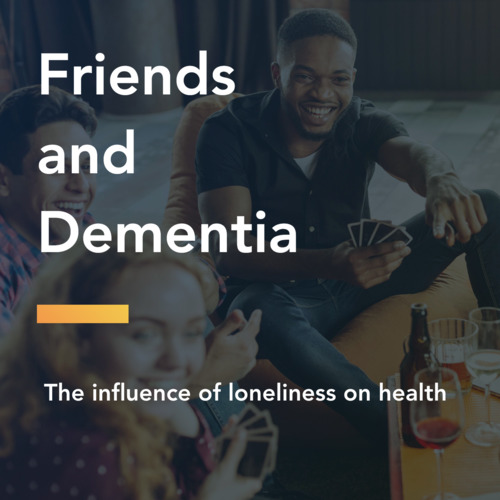Blood Pressure & Dementia
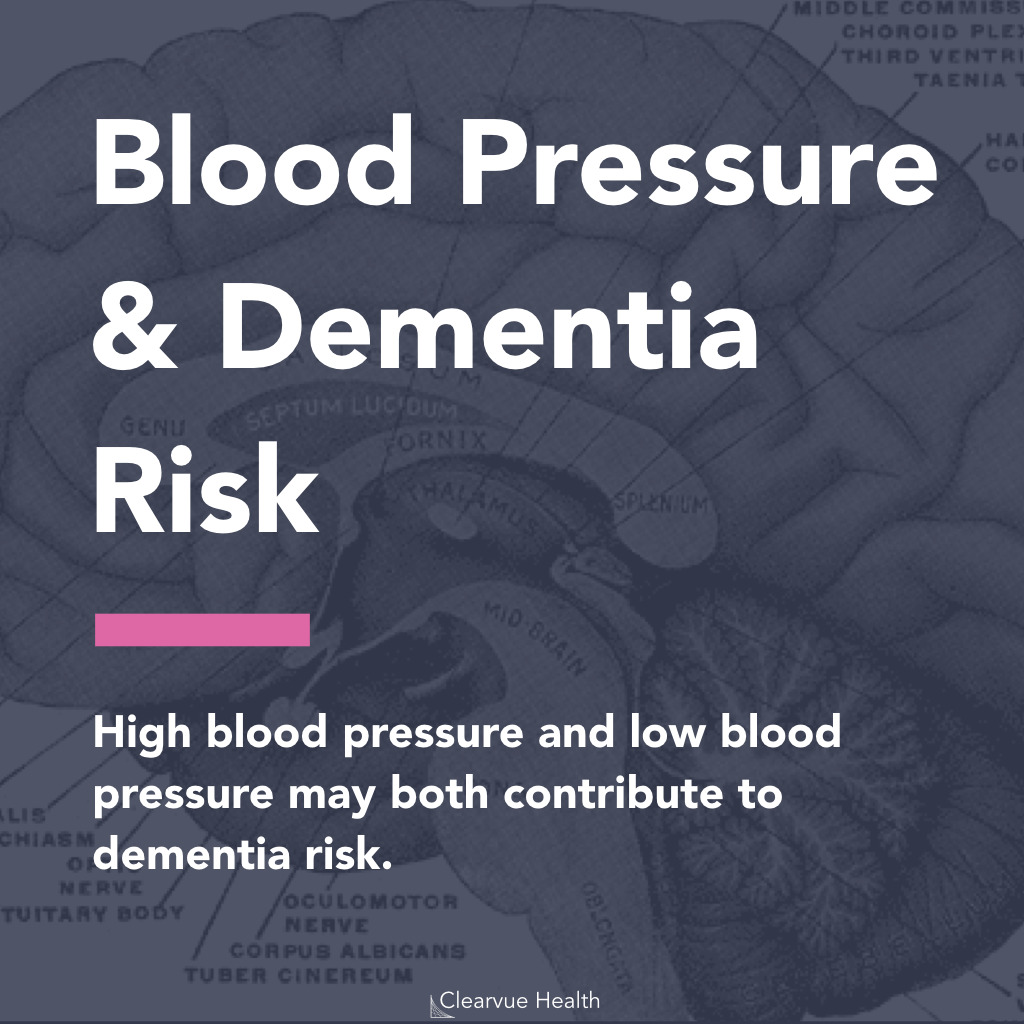
Research is starting to show that dementia risk can be modified, just like heart disease and cancer. Your lifestyle plays a huge role in protecting you against dementia.
Diet and exercise may be more effective than any medication when done consistently and correctly.
High Blood Pressure Increases Dementia Risk by 41%
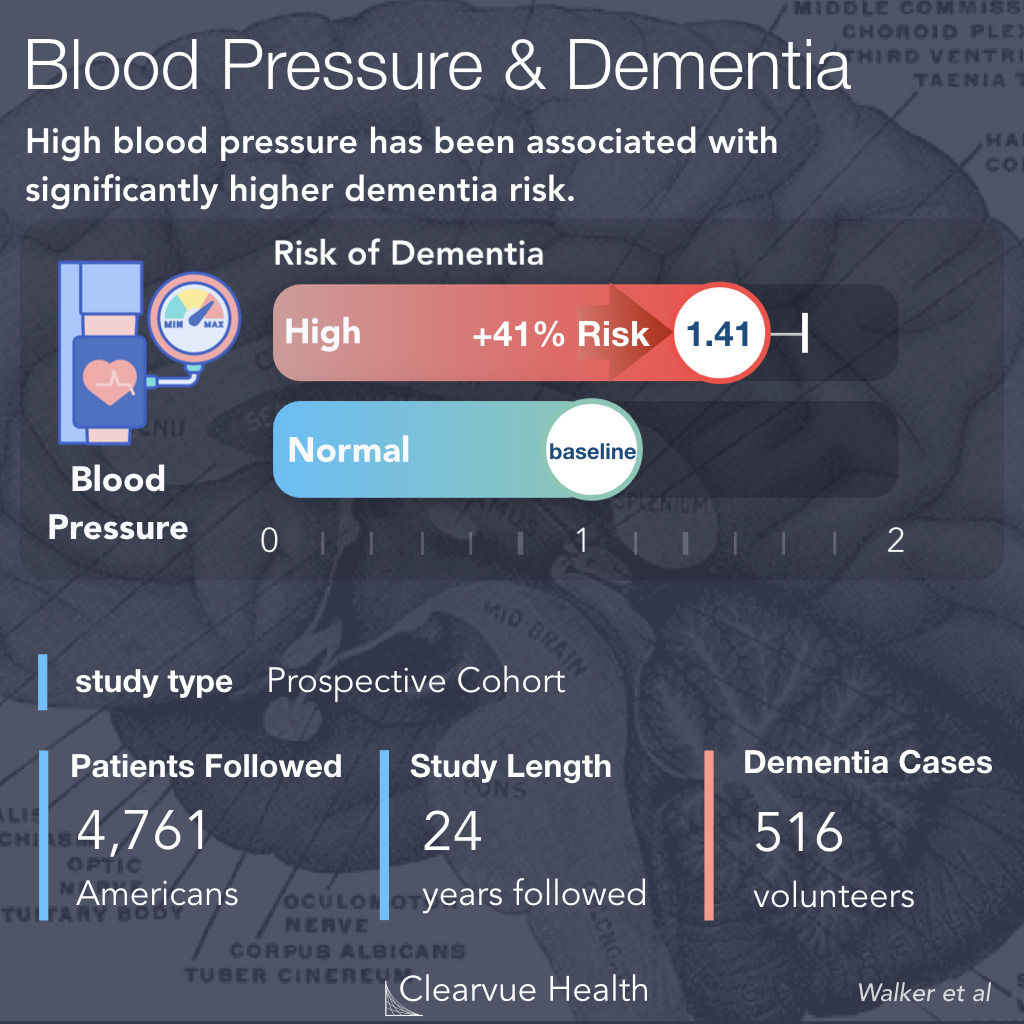
Figure 2: High Blood Pressure Increases Dementia Risk by 41%. Researchers obtained this data from a prospective cohort study covering 4,671 Americans over 24 years. Participants had their blood pressure monitored in middle age and old age. They were then followed to see which factors increased dementia risk.
Having high blood pressure in middle age has been associated with a 41% higher risk of dementia.
Researchers estimated this based on results from 4,761 Americans who were followed over 24 years in what we call a prospective cohort study.
Source: Association of Midlife to Late-Life Blood Pressure Patterns With Incident Dementia
Blood Pressure Matters, Even if you're young
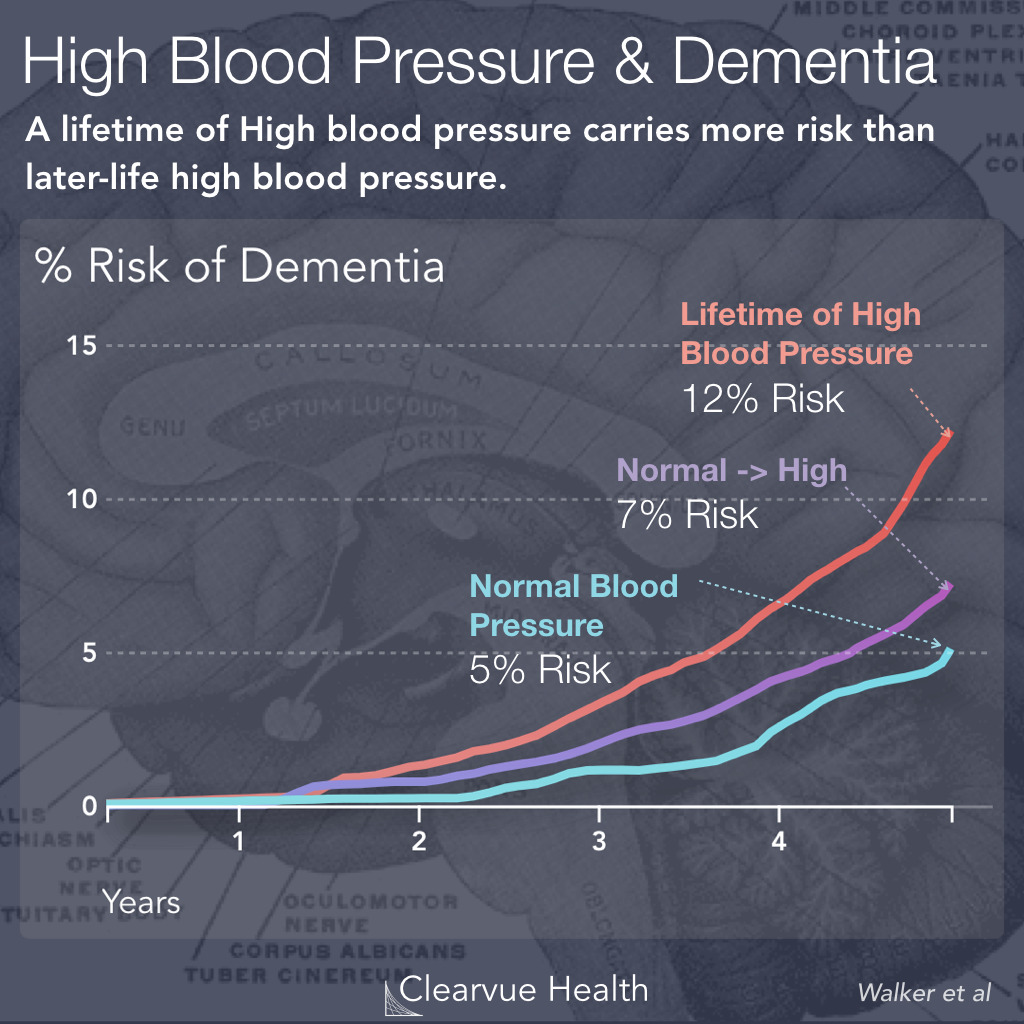
Figure 3: Blood Pressure vs Dementia Risk over time. Blood pressure matters, even if you're young. A lifetime of high blood pressure carries more risk than later-life high blood pressure. Researchers obtained this data from a prospective cohort study covering 4,671 Americans over 24 years. Participants had their blood pressure monitored in middle age and old age. They were then followed to see which factors increased dementia risk.
The differences in dementia rates between patients with high and normal blood pressure are dramatic. Those with high blood pressure have a 12% risk of dementia. Those with normal blood pressure have only a 5% risk of dementia.
Those who have normal blood pressure as younger adults, but then develop high blood pressure as they reach middle and old age, have a higher risk of dementia than those who have normal blood pressure their entire lives. (7% vs 5%)
This suggests that blood pressure matters, even for younger adults.
Source: Association of Midlife to Late-Life Blood Pressure Patterns With Incident Dementia
Low Blood Pressure may suggest a high dementia risk
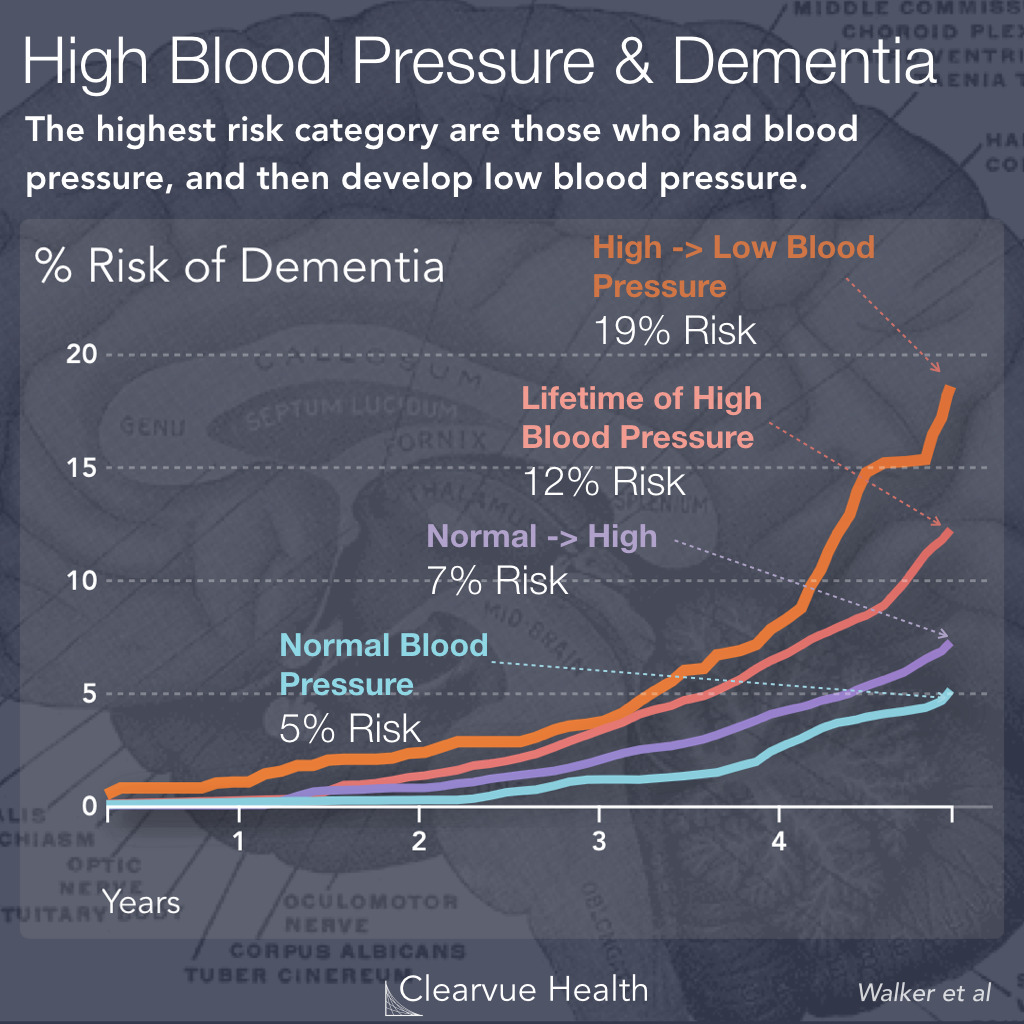
Figure 4: Low Blood Pressure may suggest a high dementia risk. Individuals with hypertension who then develop low blood pressure had the highest risk of dementia across all categories studied. Researchers obtained this data from a prospective cohort study covering 4,671 Americans over 24 years. Participants had their blood pressure monitored in middle age and old age. They were then followed to see which factors increased dementia risk.
Surprisingly, those with the highest risk of all our individuals who start with high blood pressure, but then develop very low blood pressure when they age. A lifetime of high blood pressure is associated with a 12% risk of dementia. Those who have high blood pressure, and then low blood pressure as they age, have a 19% risk of dementia.
The same pattern applies to those with normal blood pressure and then develop very low blood pressure as they age.
Researchers aren’t entirely sure why this happens, nor do they know whether raising very low blood pressures can help dementia.
Researchers suspect that very low blood pressure may be an indication that dementia is developing, even before other more visible symptoms show.
Source: Association of Midlife to Late-Life Blood Pressure Patterns With Incident Dementia
Lowering Your Blood Pressure
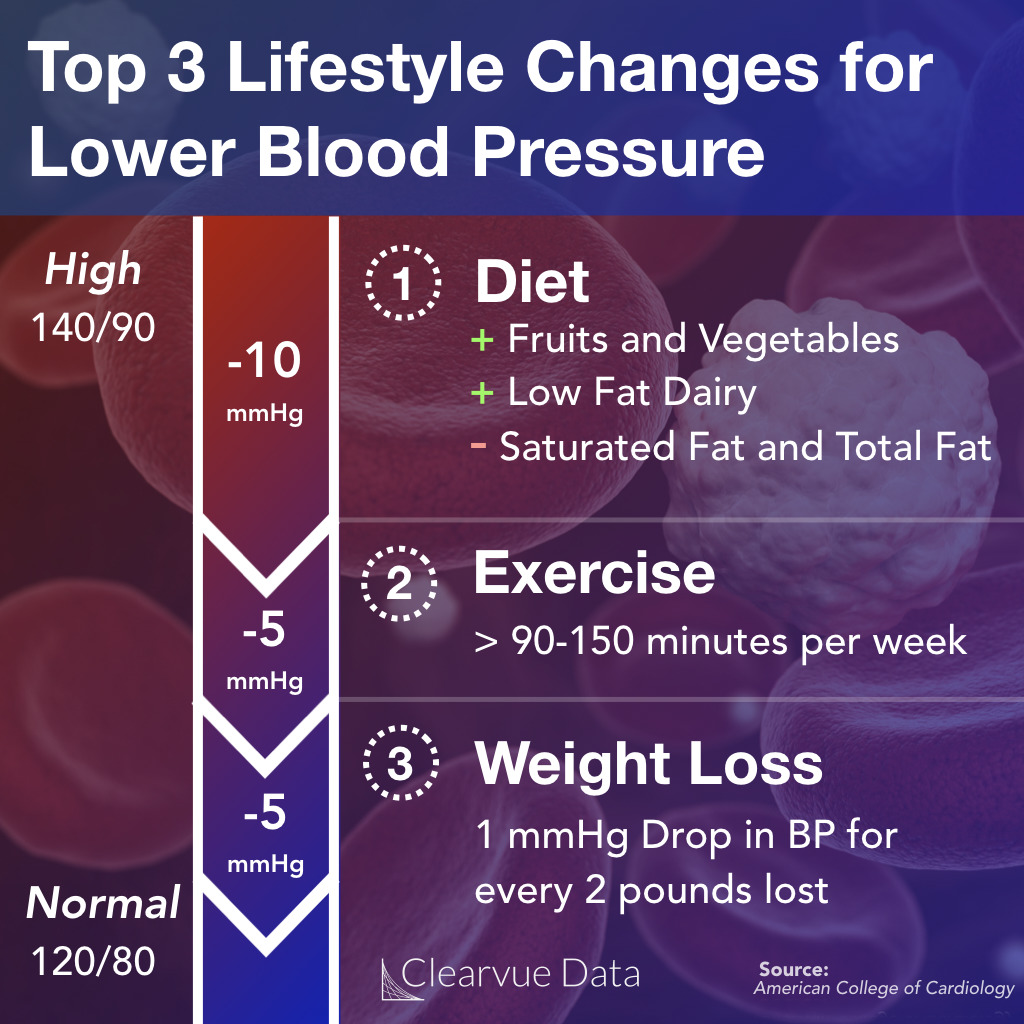
Figure 5: Lowering Your Blood Pressure. The above recommendations were adapted from the American College of Cardiology.
One very well established way to reduce your risk of dementia is lowering your blood pressure through diet and exercise.
Based on the recommendations from the American College of Cardiology, we have created a chart above that details ways you can reduce your blood pressure naturally without medication.





